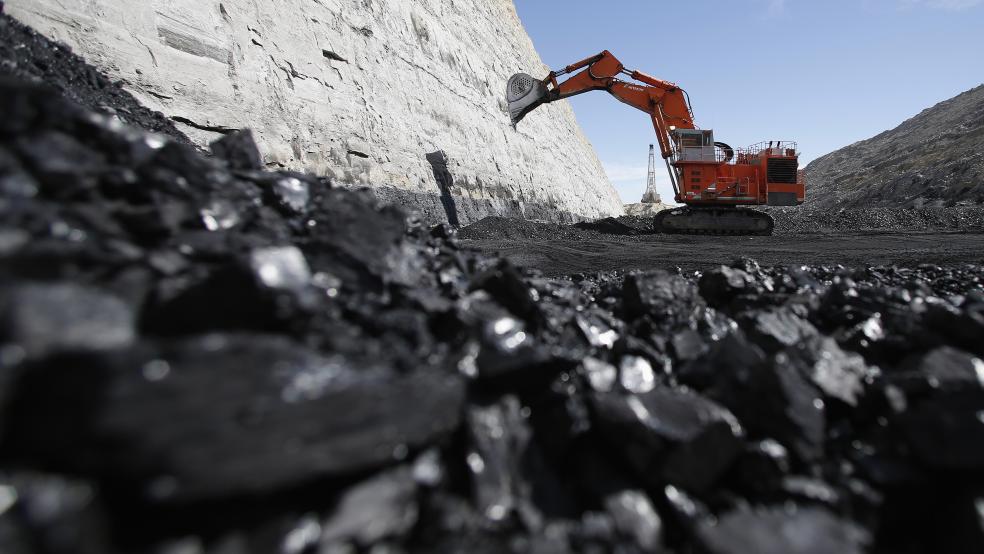Clean coal is dead.
While the notion of coal being a source of “clean” was a bit oxymoronic to begin with, the Obama administration perhaps put an end to the dream for good.
The so-called FutureGen 2.0 project was an ambitious – some might say quixotic – attempt by the Bush administration to demonstrate the viability of coal in an era of greenhouse gas reductions. The $1.7 billion project hoped to overhaul a 65-year-old coal-fired power plant in Illinois with carbon capture technology. After carbon sequestration was demonstrated, the government-backed project would help develop a new industry of low-carbon coal power.
Related: How Plunging Oil Prices Could Create Economic Upheaval
But it wasn’t to be. The Department of Energy scrapped the project on February 3, ordering the developer to cease work due to the expiration of federal funding. “The U.S. Department of Energy has directed the suspension of FutureGen 2.0 project development activities. The DOE has concluded that there is insufficient time to complete the project before federal funding expires in September 2015,” Ken Humphreys, CEO of the FutureGen Alliance, said in a statement on February 3.
FutureGen had been riddled with problems from the start. Originally proposed by the Bush administration in 2003, it suffered from huge cost overruns, leading to its cancellation in 2008.
But the Obama administration revived the project following the financial meltdown, including funding for the carbon capture and sequestration coal plant as part of the administration’s stimulus package. The inclusion was made in no small part to the strong support of Senator Dick Durbin (D), a powerful Illinois Democrat in the Senate and Obama ally. He released a statement following its cancellation on February 3, lamenting the loss of FutureGen. “This is a huge disappointment for both Central Illinois and supporters of clean coal technology,” he said.
“A decade-long bipartisan effort made certain that federal funding was available for the FutureGen Alliance to engage in a large-scale carbon-capture demonstration project. But, the project has always depended on a private commitment and can’t go forward without it,” Durbin added.
Related: Surprise! An Oil Price Spike is Coming
Indeed, the project had trouble finding financial backing. As a first-of-its-kind demonstration, many companies remained skeptical that the technology was commercially viable. The original design changed several times – using different technologies and changes in the site location. Troubles obtaining other permitsset the project back. Costs ballooned and the project increasingly looked like an unviable technology.
Ultimately, the clock ran out. The $1 billion in federal funding as part of the stimulus project was set to expire in September 2015.
The failure of the only large-scale carbon capture and sequestration project ultimately dims the prospects that coal will have a legitimate role to play over the long-term in America’s electricity market, due to the need for utilities to comply with EPA regulations to cut greenhouse gas emissions. In other words, the failure of FutureGen could accelerate the death of coal as a source of power generation.
In political terms, the death of “clean coal” is another setback for the influence of the coal industry, already diminishing because of its shrinking market share. The coal lobby has been historically very powerful, and the existence of FutureGen was a sort of political compromise to begin with – the Obama administration threw coal a bone, offering up billions of dollars in support of an unproven technology in exchange for heavier Congressional action on clean energy and climate change.
Related: What Saudi Arabia’s New King Means for Oil Prices
Since then, a wave of shale gas has come online and clean energy is getting cheaper by the day. Coal seems less necessary than it once did. That means there will likely to be less of a pretense in the White House of supporting a future for the coal industry. EPA regulations had already ensured that it will be essentially impossible to build new coal plants without carbon capture technology. But with FutureGen dead, so is the dream of clean coal.
This article originally appeared at OilPrice.com.
Read more from Oilprice.com:
Electric Utilities Face A Disruptive Future
How Broken Are The Energy Markets?
IEA Says Coal Demand Will Keep Growing Through 2019


